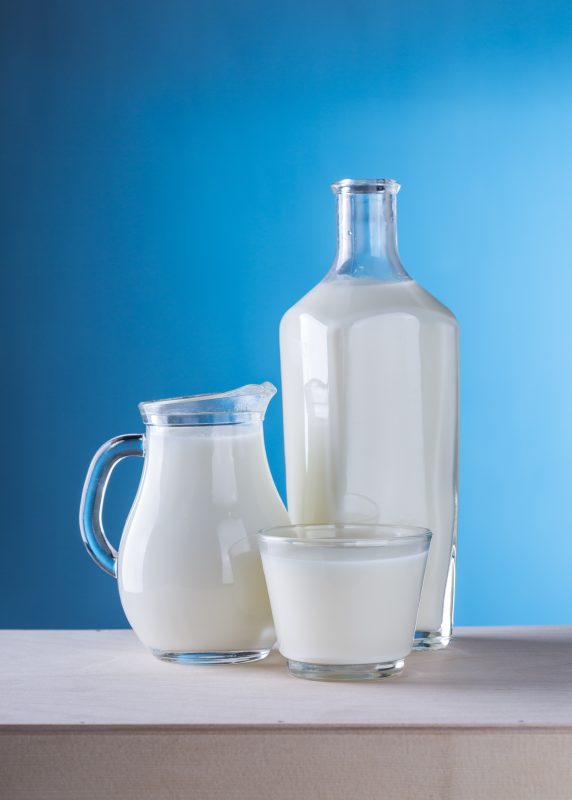Camel or Cow Milk?
Products containing camel milk are gaining in popularity – from camel milk ice cream, camel milk chocolate to camel milk soap and more…
But what is the secret to camel milk’s popularity?
While cow’s milk is the most commonly consumed type of milk, camel milk is gaining recognition for its unique properties and potential health benefits. This article delves into the qualities of camel milk that make it superior to cow milk in various aspects, including nutrition, health benefits, and environmental sustainability.

I. Nutritional Superiority
- Lower Fat Content Camel milk generally contains lower fat content compared to cow’s milk. This makes it a favorable option for individuals who need to manage their fat intake, such as those with cardiovascular issues or those seeking a low-fat diet.
- Unique Protein Profile Camel milk offers a different protein profile compared to cow’s milk. The proteins in camel milk are smaller in size, making them easier to digest. Additionally, camel milk contains all the essential amino acids required by the human body.
- Reduced Lactose Many people are lactose intolerant, which means they cannot digest the lactose found in dairy products effectively. Camel milk contains significantly less lactose than cow’s milk, making it a suitable alternative for individuals with lactose intolerance.
- Higher Mineral Content Camel milk is rich in essential minerals, including calcium, iron, and magnesium. These minerals are crucial for bone health, oxygen transport in the body, and maintaining a healthy heart.
- Abundance of Vitamins Camel milk is a good source of vitamins, including vitamin C, vitamin B1, and vitamin B2. Vitamin C is known for its antioxidant properties, while the B vitamins play a vital role in energy metabolism.
II. Health Benefits
- Immune System Support Camel milk contains high levels of immunoglobulins, which are antibodies that help boost the immune system. These antibodies can help the body defend against infections, making camel milk a valuable addition to one’s diet, especially during flu seasons.
- Antimicrobial Properties Camel milk possesses natural antimicrobial properties due to the presence of lysozyme and lactoferrin. These compounds are effective in fighting harmful bacteria and protecting the body against infections.
- Diabetes Management The low glycemic index of camel milk means it helps stabilize blood sugar levels. For individuals with diabetes, camel milk can be a valuable dietary inclusion to help control blood glucose.
- Potential Cancer-Fighting Properties Preliminary research suggests that camel milk may have anticancer properties. Certain proteins in camel milk, such as lactoferrin, are being studied for their potential to inhibit the growth of cancer cells.
- Allergies and Asthma Relief For individuals allergic to cow’s milk, camel milk provides an alternative. The distinct protein composition in camel milk often alleviates allergic reactions. Additionally, its anti-inflammatory properties may help relieve asthma symptoms.
- Digestive Health Camel milk is known for its digestive benefits. It is often recommended to individuals with gastrointestinal issues, as it is more easily tolerated than cow’s milk.
III. Benefits of Camel Milk Soap for your skin.
Camel milk is a fairly recent addition to skincare, is packed with vitamin C, which helps produce collagen and is a fantastic product for sensitive skin. Other benefits include:
1. Contains high levels of Vitamin A, C, E and D.
Vitamins A, C and E and powerful antioxidants that may protect the skin from free radicals. Vitamin C encourages collagen, which promotes smooth and supple skin. Vitamin D is said to assist in fighting acne.
2. Reduces lines and wrinkles
The use of camel milk soap for a face wash may reduce the appearance of fine lines and wrinkles. It is also said to exfoliate and to promote growth of new skin cells.
3. High in potassium.
One of the minerals found in camel milk soap, ideal for a face wash, is potassium, which may help regulate sebum production and reduce blemishes. Calcium encourages skin renewal, while selenium contributes to skin tissue elasticity, and zinc promotes new skin growth and serves as an antioxidant.
IV. Benefits of Camel Milk for the environment
- Water Efficiency One of the key advantages of camel milk production is its water efficiency. Camels are adapted to arid and semi-arid environments, where they can thrive on limited water resources. This makes camel milk production more sustainable in regions facing water scarcity.
- Lower Greenhouse Gas Emissions Camel farming typically produces fewer greenhouse gas emissions compared to conventional dairy farming. The feed requirements, energy consumption, and methane emissions from camels are generally lower than those of cows.
- Reduced Land Use Camels are well-suited for grazing in arid regions with limited vegetation. This means they can produce milk without requiring vast amounts of land, which is often a concern in the dairy industry.
Camel milk offers several advantages over cow’s milk, making it a compelling choice for individuals seeking alternative dairy products. Its unique nutritional composition, health benefits, and sustainability make it an attractive option for those looking to diversify their diets. As awareness of its benefits grows and production methods become more efficient, camel milk is likely to gain further recognition and acceptance as a superior dairy product.

How to Improve Your Skin From Inside Out
Fio de Ouro Professional Skin Care Gift Set
Fio de Ouro B5 Intensive Moisturizer 250ml

